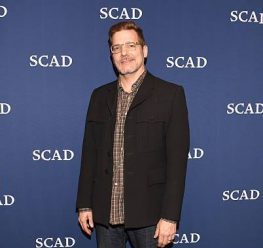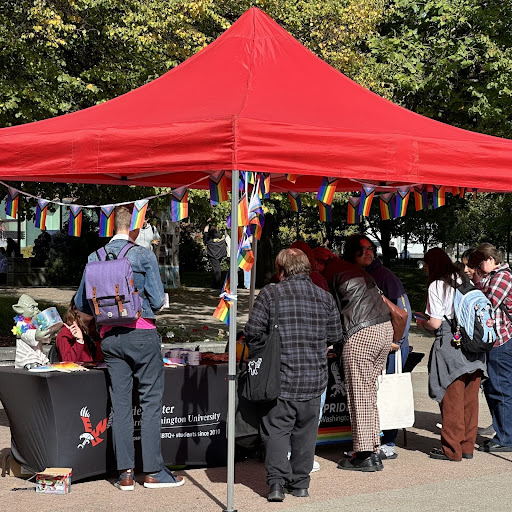Nine-time Emmy nominated TV writer/producer Eric Horsted visits EWU

ATLANTA, GA – FEBRUARY 04: Writer and Producer Eric Horsted attends the “Futurama” event during Day One of aTVfest 2016 presented by SCAD February 4, 2016 in Atlanta, Georgia. (Photo by Vivien Killilea/Getty Images for SCAD)
October 26, 2021
While reading the Spokesman- Review in June, Dr. Shari Clarke, vice president for Diversity and Senior Diversity Officer, discovered Eric Horsted, TV writer and producer of Blackish, a show she was watching at the time, had moved to Spokane with his husband and three children.
Horsted is a renowned writer and has worked on shows like Reba, Futurama, The Simpsons and Blackish.
The article sparked Clarke’s interest, and she decided to invite Horsted to EWU to speak with the community about his experiences as a professional writer. A panel from EWU asked Horsted questions about his life as a writer and, his background and advice for young writers pursuing careers in the writing field.
Horsted grew up in the suburbs of Houston, TX, and one of his passions included watching television. He went to college at the University of Texas in Austin and eventually made the move to Los Angeles. He said life in Austin would not get him the opportunity to work in Hollywood.
In LA, Horsted eventually started reading scripts and analyzing them for producers. It was at that point that he decided to write comedies and sitcoms. After a year, he got a personal assistant job in a writer’s bungalow. Horsted said the writers were brilliant and he wrote his first sample script there.

Horsted and his family decided to buy a house in the Spokane area after only a few visits. They wanted to stay on the West Coast and enjoyed the slower pace and lower costs of living.
Horsted said the process for TV show comedies is a collaborative process with approximately seven-15 writers. They begin by pitching ideas to discuss the arc? arch of the show; there are many discussions about the script.
When writing for the TV show Blackish, all the writers had different life experiences; over 50% of the writing staff was African American. Horsted said Blackish was written in a unique way. There were days of discussion between the writers about their personal experiences. Some of their own experiences were incorporated into the show.
Horsted said the most challenging and satisfying show for him as a writer was Futurama. It was his first animated show, and he would work for 10-14 hours, seven days a week at some points of the writing process. He said it was a grueling experience as some of the writers had gone to Harvard and had engineering degrees. However, Horsted said the process was ultimately worth it to him.
Horsted said he knows when his script is finished when he starts tearing it up after reading the script so many times.
Horsted’s advice to young student writers is to write every day. Set a time to write, even if it is only for 15 minutes. Eventually, it will not seem like a chore anymore. Every script is way better than the first draft.
Horsted said he may want to step into the professor role at some point in his career. He said it would be nice to share his knowledge and help new generations of writers
In his career, Horsted has had eight Emmy nominations and has received two awards. Horsted’s awards include the Outstanding Animated Program for Futurama in 2011 and the Outstanding Animated Programming (for less than one hour) for Futurama in 2002.
Horsted is proud that his professional career is still continuing. Currently, he is working on a pilot idea which is unknown at this time.






